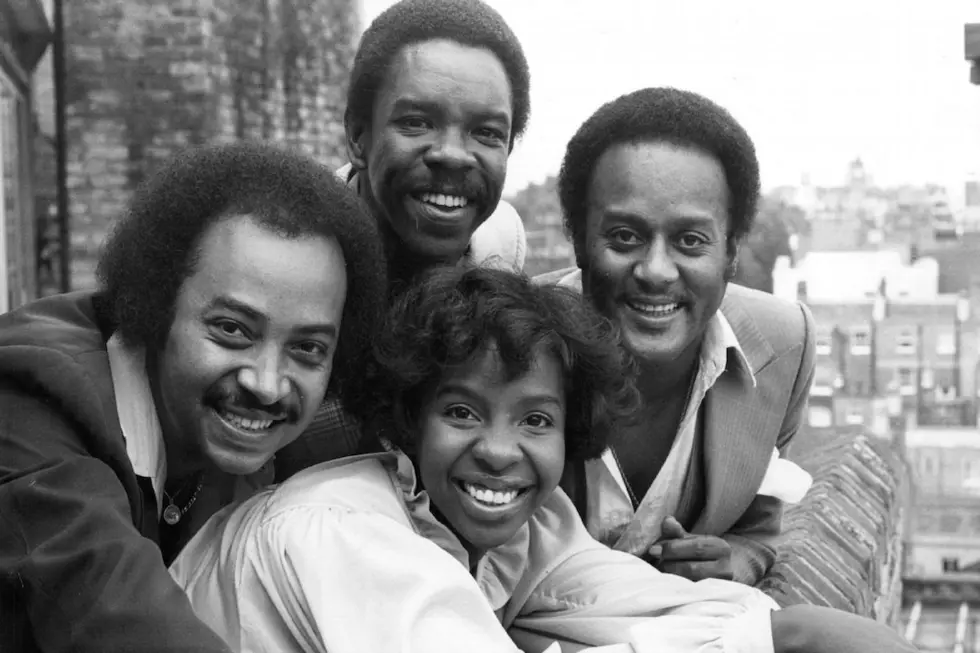
Avehre Is Gladys Knight’s Protege and Chicago’s Next Great Songwriter
Name: Avehre (Ah-Veer)
Hometown: Chicago, IL
Age: 27
Notable mention(s): Gladys Knight's protégé
These days, it's rare to watch a music legend take a kid with potential and mold him or her into a rising star. Michael Bivins molded Boyz II Men, Usher did it with Justin Bieber and Dr. Dre did it with Eminem, but to be trained by a great like Gladys Knight doesn't happen everyday. Chicago's rising singer/songwriter Avehre is here to remind young singers with a dream that "gifts from God" can still happen in the music business.
Born and raised in one of America's most eclectic musical cities, Avehre got his start like many iconic R&B singers over the years: in the church. But unlike many others, the 27-year-old singer realized early that gospel and the church setting was not the place he was slated to share his voice. "I realized my sound wasn’t really a typical gospel sound," Avehre told The Boombox. "They didn’t understand what I was trying to do sonically, and I felt like my story was a little bit bigger than the four walls at the church."
Now, after an unsolicited audition tape, a job as one of Gladys Knight's backup singers, a debut project called Star Filled Sky and a lot of sold out shows with the legendary singer herself, Avehre is ready to take his music career to the next level. The Chi-town native is gearing up for the release of his sophomore EP, Reconciliation. Originally called Chapter 27 (the singer/songwriter's age), Reconciliation is a project about growth, not only for the singer, but for fans listening and relating to Avehre's storytelling.
Avehre sat down with The Boombox to talk about Gladys, the power of songwriting and what it's like to catch a break in a cutthroat industry.
The Boombox: You’ve been dubbed "Gladys Knight’s protégé." It’s all over your social media and marketing materials. How did you take on that persona?
Avehre: It started as just a regular job, singing background. I had to go [audition] just like everybody else, and it was a pretty grueling process. [Gladys] was about to go on tour with The O'Jays – this was about three-and-a-half years ago – and she made an executive decision to switch some of the personnel. I had to learn 65 songs, and start the tour a week later. But the thing was, I didn’t know if I was gonna get the job or not, [but] whether you got the job or not, you had to come prepared and learn those 65 songs. That’s kind of how it started, and three years later I started to do some song writing, and she approached me and said, “You know, I’ve never really done this before, but I really want you to consider being my protégé.” And how do you say no to Gladys Knight? I think [it's] one of the most incredible gifts straight from God.
Gladys is a legend. How did you land an audition with her in the first place?
In this industry, I’m learning a lot of the auditions are not publicly announced. [I] actually knew [one of her singers] through social media. [She] knew I was a songwriter and I was around a lot of singers, and was like, “Hey, do you know anybody you can recommend?” [So], the funny thing is, they weren’t even asking me to audition.
So for you, this really was a gift from God.
[Well], I sent out the request to a couple of friends that I knew were looking for work, [but] nobody ever auditioned. I got kinda upset because I was like, ‘Yo, I got a really cool connection for you guys and you’re not even trying to audition.' So at the last minute, I just decided to send my own audition tape, and it actually got picked.
Before your big break with Gladys, what got you started in songwriting and singing? And when you realize it would be your career?
It started because growing up – I’m a baritone, and most songs are for tenors. Everybody growing up sang [in a] high [range], so I could never sing their songs or do them justice without changing the key. And I remember growing up, my music teacher would say, "Sometimes when you change the key to a song, it loses its pull." So I just realized, maybe I need to start writing my own music.
What steps did you take teach yourself how to write your own music?
I actually started off in a competing poetry team in high school called Verbal Remedies. That was my first chance to really learn how to express myself and use my words even beyond music. I love how it made people feel. I loved the expressions I would see on their faces when we would start our poetry. [I thought], if I can get this much expression out of somebody with no music, maybe I should find a way to make people feel as good as I did when I read [that] poem or when I told this story. When I started doing that, people really started to gravitate more to my music. I would get compliments like, 'You sound great, but this is a really great story,’ and I never want to lose that in my music.
How old were you when you started singing and songwriting?
I started songwriting when I was about 10 years old. I’ve been taking it serious I would say for the last 10 years. Even before I knew I wanted to be an artist, I always wanted to be a writer. I feel like as a writer you can speak kinda through other people. As Avehre, I can only reach those who want to hear Avehre. But as a writer, I can write for Beyoncé, I can write for Chrisette Michele or anybody in any genre, and my story will still be heard no matter if I’m singing it or not.
What would you say surprises people about your music? What makes you unique?
I was classically trained. I went to musical theater most of my life. A lot of the time, if I sing something that people don’t expect it’s more so on a Celine Dion or Michael Bublé or Ella Fitzgerald [vibe]. I love to show that I’m well-versed.
What specific artists are your inspiration?
I’m heavily influenced by Drake. I love Drake. [But] I feel like there’s a way to blend all [these] incredible genres, and all the things you’re inspired by through music without losing who you are. I know a lot of times nowadays they want to keep you in a box like, ‘Oh this is how we need to market you,’ but then I think about artists like Rihanna who have reggaeton songs, R&B songs, pop songs and trap songs...her voice is the brand, the production is the brand, and she has the opportunity to showcase herself in all of those different lights [by] breaking genre barriers. That’s really what I want to do as well.
You have a new song out, "Say It Ain't So." Was there a message you were working to get across?
What’s crazy is, at first, we weren’t going to release it. And it’s actually not even going to be on the EP. It’s really just a buzz song. I got a call to write on another artist’s record. When I heard that track it just started flowing out. When I heard it and played it back, it just was so true, and I honestly forgot I was supposed to be writing it for someone else. I told the artist, “I have to keep this song for myself.” So we made a deal, and I wound up writing him two other songs if he let me keep that one.
That track sounds like a deeply-rooted love story. Is that what fans can expect on your upcoming single, "Diamonds," and your EP?
"Diamonds" is a lot more current in terms of what’s going on in music today. It’s about being in love and...buying [the person you're with] certain things, but not in a way that takes away the attention of what really matters, which is being in love and being in a relationship. "Diamonds" is kinda saying, 'Yeah, I might buy you these things, but don’t get it twisted. This is not in place of me. Diamonds can’t love you the way I can love you. Cards can’t love you the way I can love you. These are just tokens of my appreciation to you.' The storyline follows [what] starts off being your typical relationship. The guy does nice things for the girl, but she starts to love those things more than the relationship. [Eventually], she’s really just there for the clothes and the diamonds and the pearls, and doesn't really care whether he’s there or not as long as he keeps sending those gifts.
More From TheBoombox




![Gladys Knight Wants Women to ‘Stand Up,’ Singers to Stop Selling Sex [VIDEO]](http://townsquare.media/site/625/files/2014/10/GladysKnight_MSNBC.jpg?w=980&q=75)




